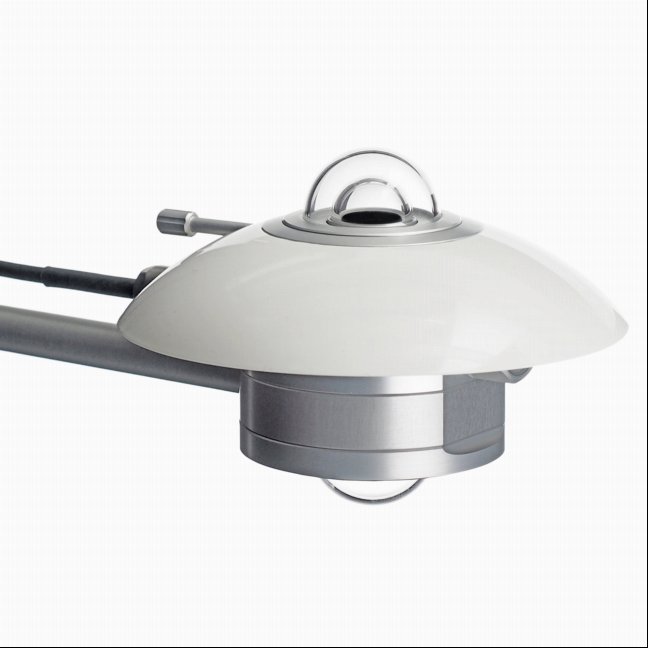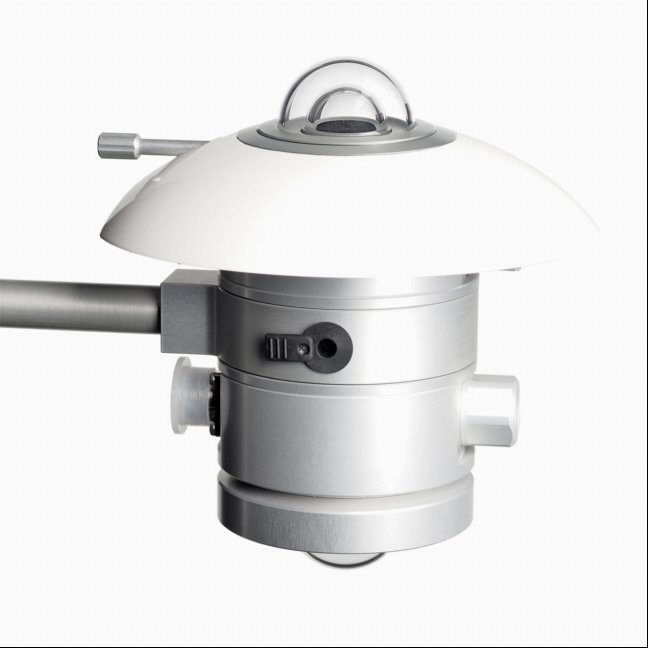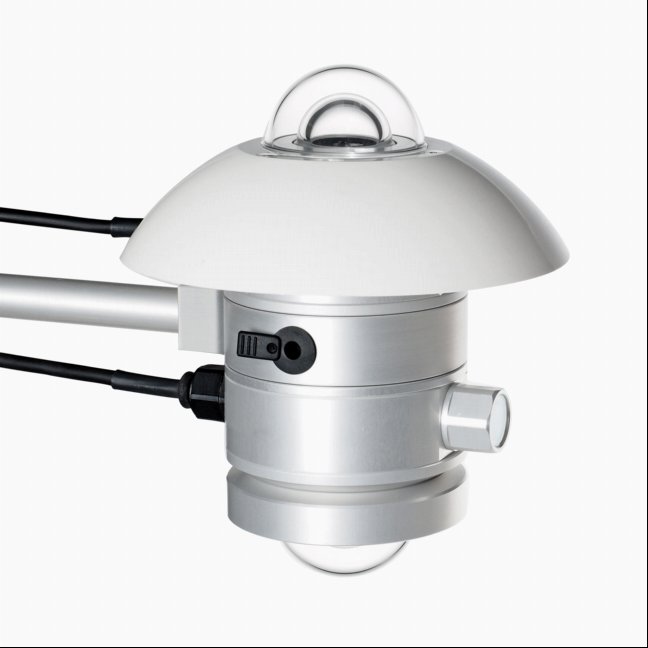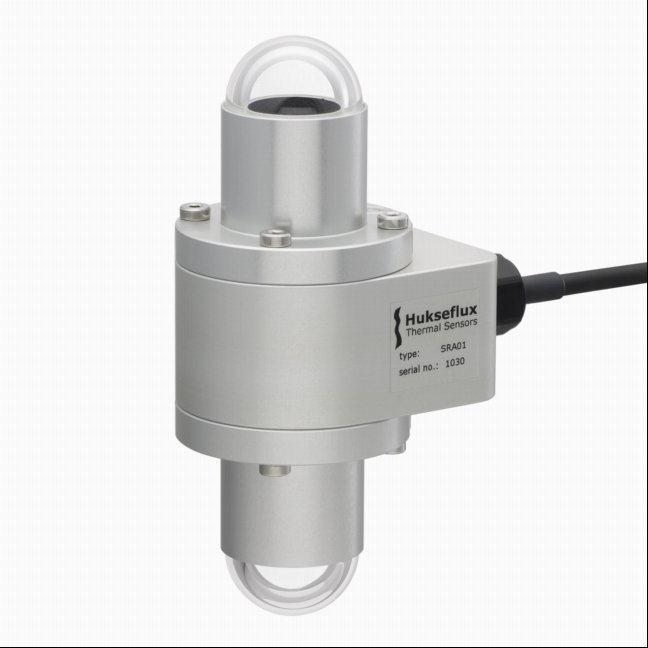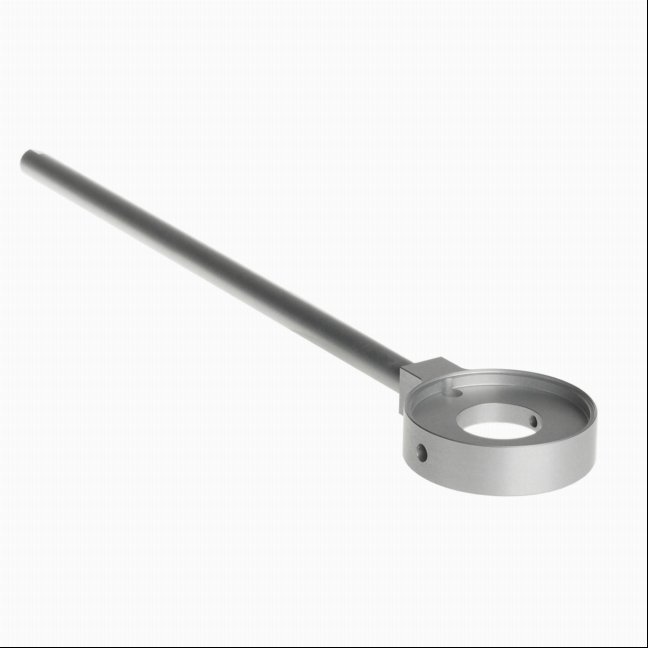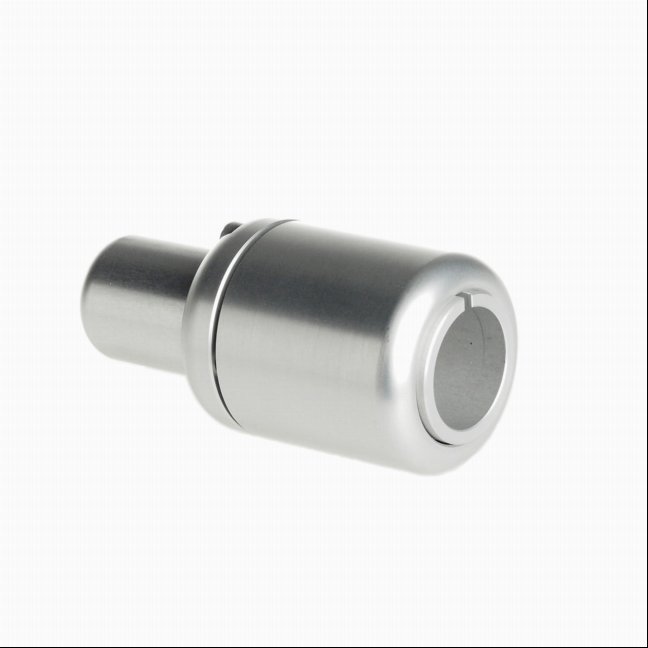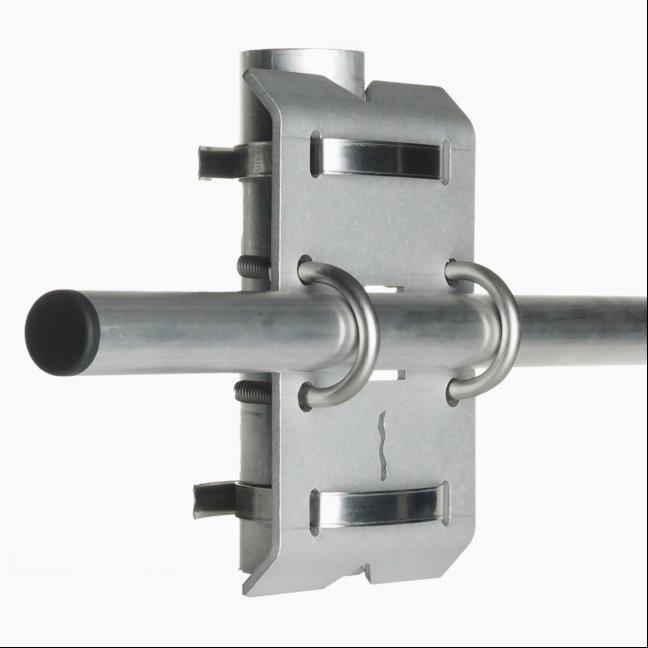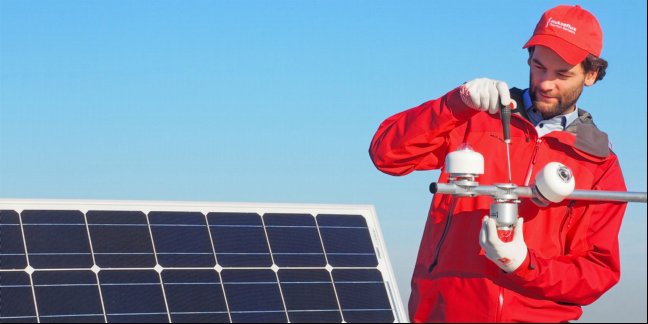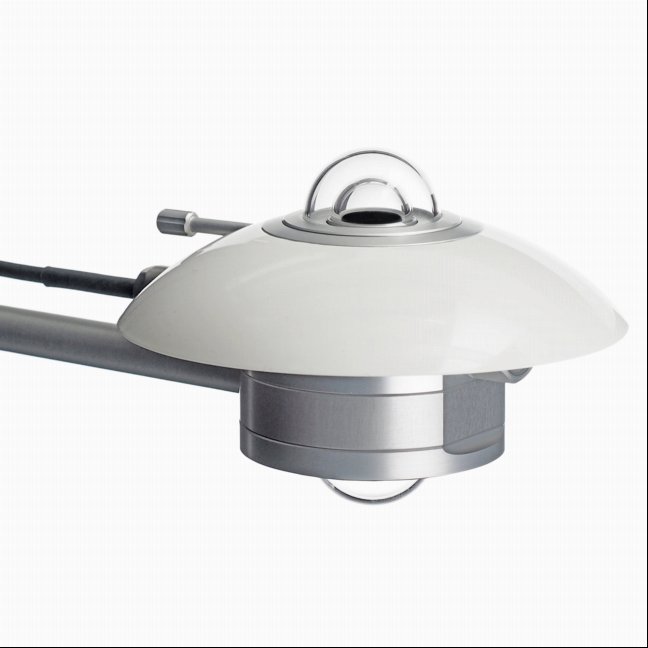Albedometers are instruments that measure global and reflected solar radiation, and the solar albedo. An albedometer is composed of two pyranometers with thermopile sensors; the upfacing one measuring global solar radiation, the downfacing one measuring reflected solar radiation.
Albedo, also called solar reflectance, is defined as the ratio of the reflected to the global radiation. Hukseflux offers a full range of albedometers, from second class to secondary standard.
Albedometers
Albedometers measure global and reflected solar radiation, and the solar albedo, or solar reflectance. Albedo, also called solar reflectance, is defined as the ratio of the reflected to the global radiation. The solar albedo depends on the directional distribution of incoming radiation and on surface properties at ground level. Albedos of typical surfaces range from about 4 % for fresh asphalt, and 15 % for green grass to 90 % for fresh snow.
Hukseflux offers a full range of albedometers, from ISO 9060 second class (class C) to secondary standard (class A). A Hukseflux albedometer is composed of two accurate pyranometers with thermopile sensors; the upfacing one measuring global solar radiation, the downfacing one measuring reflected solar radiation.
A typical application of albedometers, combined with net radiometers, is the study of "heat islands", for example in cities. Besides its traditional use in meteorology, climatology and building physics, albedometers are increasingly used in PV system performance monitoring of the popular bifacial solar modules.









